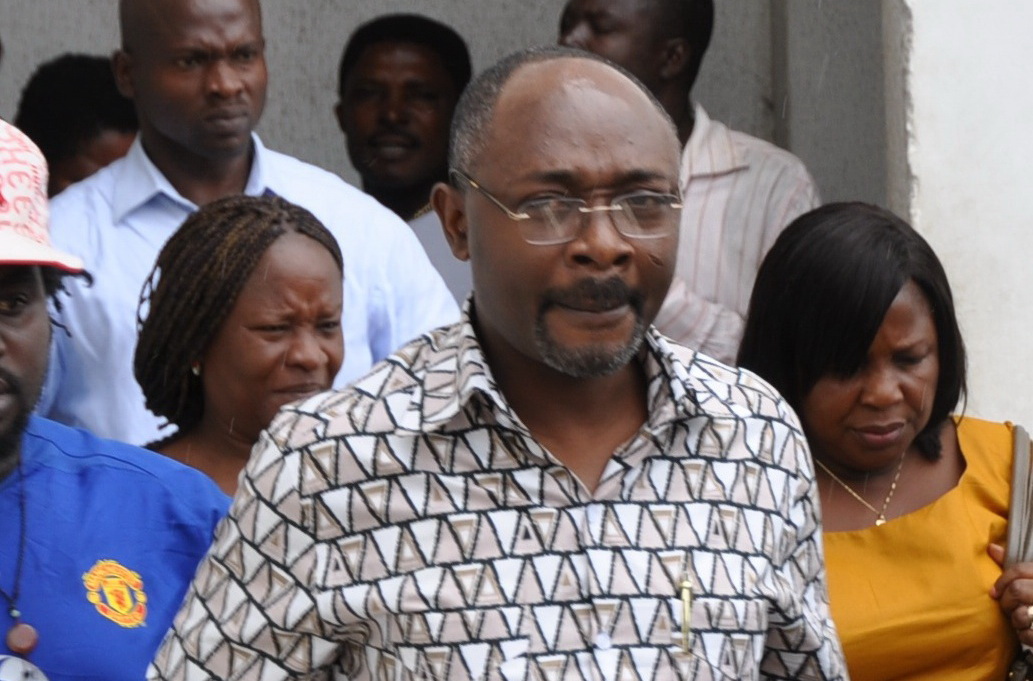
Go after Woyome’s GH¢47.2m — Supreme Court
If Mr Alfred Agbesi Woyome has any plans of celebrating his recent legal victory at the African Court on Human and People’s Rights (ACHPR) based in Tanzania, he must put those plans on hold because the Supreme Court has given the state the green light to collect the remaining GH¢47.2 million left for him to pay out of the GH¢51.2 million judgement debt that was wrongfully paid to him by the government.
Advertisement
The businessman received what could have been the biggest Christmas gift on November 24, 2017 when the ACHPR ordered the government of Ghana to suspend all attempts to retrieve the money.
The suspension, the court ruled, would be in force until it determined an appeal filed by the businessman.
But, in a unanimous decision yesterday, the Supreme Court, constituted by five justices, dismissed an application by Mr Woyome to stop the Attorney-General (A-G) from going ahead with plans to collect the money.
“The application has no merit and is hereby dismissed,’’ the court ruled.
The five-member panel was presided over by Mr Justice Jones Dotse, with Mr Justice Anin Yeboah, Mrs Justice Vida Akoto Bamfo, Mr Justice Alfred Anthony Benin and Mr Justice Yaw Appau as the other members.
Mr Woyome wanted the court to stop the A-G from orally examining him on whether he had the means to pay the money, stop the valuation and sale of his assets and any other attempt to collect the money until the ACHPR determined his appeal.
Constitutional matter
The ruling, which was read by Mr Justice Yeboah, explained that the court’s judgement in 2014 that ordered Mr Woyome to pay the GH¢51.2 million was a constitutional matter.
That was because the court held that the contract that led to the payment of the money to Mr Woyome was not approved by Parliament, as stipulated in Article 181 (5) of the 1992 Constitution, making the payment invalid.
In view of that, it held that any attempt to stop the execution of the judgement would be in violation of Article 2 of the 1992 Constitution, which makes the failure to disobey a Supreme Court decision in a constitutional matter a high crime.
“The execution of the judgement by the Attorney-General is in line with steps to fulfil constitutional provisions,’’ it held.
No human rights violation
Another point canvassed by Mr Woyome in his application was that failure by the Supreme Court to stop the A-G from chasing him for the money until his case was determined by the ACHPR would amount to a violation of his human rights.
But the court, in the ruling, dismissed that line of argument, saying that Mr Woyome failed to prove that attempts by the A-G to retrieve the money based on the court’s judgement in 2014 had violated his rights.
“The applicant (Woyome) failed to demonstrate that his human rights and freedoms had been violated,’’ it said.
So what happens to the ACHPR ruling?
The Supreme Court’s decision practically nullifies the ACPHR’s decision, making it unenforceable in Ghana.
This is because Article 129 Clause 2 of the 1992 Constitution states that the Supreme Court “shall not be bound to follow the decision of any other court’’.
Even before the Supreme Court gave its ruling, lawyers for Mr Woyome had prayed the court to stop the ruling in view of the ACPHR’s decision.
But the court threw out that request on the basis that when it came to constitutional matters, it was only the Supreme Court that had exclusive and original jurisdiction, as stipulated in Article 130 Clause 1 (a) of the 1992 Constitution.
“The court does not share its jurisdiction with any other court in constitutional matters,’’ it ruled.
Background
The Supreme Court, on July 29, 2014, ordered Mr Woyome to refund GH¢51.2 million to the state on the grounds that he got the money out of unconstitutional and invalid contracts between the state and Waterville Holdings Limited in 2006 for the construction of stadia for CAN 2008.
It held that the contracts on which Mr Woyome made and received the claim were in contravention of Article 181 (5) of the 1992 Constitution of Ghana, which requires such contracts to be laid before and approved by Parliament.
On March 1, 2016, Mr Woyome prayed the court to give him three years to pay back the money but it declined to grant his wish.
He, however, refunded GH¢4million in November 2016 and promised to pay the outstanding balance by quarterly instalments of GH¢5 million, commencing April 1, 2017.
That did not materialise after the businessman initiated a litany of legal cases at the Supreme Court to either challenge the method employed by the state to collect the money or have the judgement thrown out.
All his legal moves failed, with the Supreme Court dismissing all of them.
His case at the ACHPR is, however, yet to be determined.
Writer’s email: [email protected]



